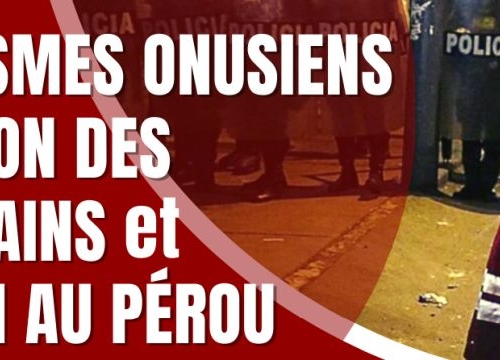Les mécanismes onusiens de protection des droits humains et la situation au Pérou
Event
Depuis le 7 décembre 2022, le Pérou a vécu la destitution du Président Pedro Castillo – professeur et leader paysan de la région rurale de Cajamarca – qui a été élu par la majorité du peuple péruvien d'origine paysanne et autochtone.
D'énormes mobilisations populaires manifestant un mécontentement au niveau national, clamant justice pour les victimes et les prisonniers politiques, exigeant un retour à la démocratie et appelant à une nouvelle Constituante ont été violemment réprimées par le gouvernement de facto. Depuis plus de 5 mois, ces mobilisations continuent de s’amplifier, et les violations de droits humains ne cessent d'être dénoncées à l’ONU.
Dans ce contexte, plusieurs mécanismes des droits humains de l'ONU ont été saisis. Le 5 avril 2023, le Comité des droits de l'Homme de l'ONU a présenté ses conclusions et recommandations suite à son examen du rapport du Pérou sur les droits civils et politiques.
Cet événement est l'occasion de discuter de ces conclusions et recommandations ainsi que de leur mise en œuvre au niveau national.
Panélistes
- Dr Guido Croxatto, Avocat expert des droits humains en Amérique latine
- Dr Milena Costas, Membre du Comité consultatif du Conseil des droits de l'homme de l'ONU
- Professeure Hélène Tigroudja, Membre du Comité des droits de l'Homme de l'ONU
- Dr Christophe Golay, Chargé de recherche à l'Académie
Interprétation
Avec interprétation Français-Espagnol







